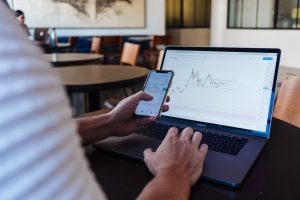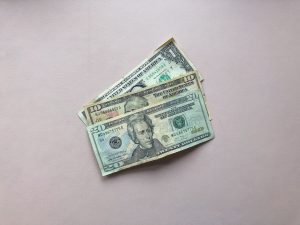The foreign exchange market, also known as the forex market, is the largest financial market in the world. It is a decentralized market where currencies are traded 24 hours a day, 5 days a week. The forex market is unique because it has no central exchange, no physical location, and no fixed trading hours. Instead, it is made up of a network of banks, financial institutions, and individual traders who trade currencies electronically.
One of the key players in the forex market is market makers. Market makers are financial institutions or individuals who provide liquidity to the market by buying and selling currencies at all times. They are crucial for the smooth functioning of the forex market as they help maintain market stability and ensure that there is always a buyer and seller for every currency pair.
In this article, we will take an in-depth look at how forex market makers work, their role in the forex market, and how they make money.
What are forex market makers?
Forex market makers are financial institutions, such as banks or large trading firms, that provide liquidity to the forex market. They do this by making a market for currency pairs, meaning that they buy and sell currencies at all times, even when there are no buyers or sellers in the market.
Market makers are also known as dealers or brokers, and they act as intermediaries between buyers and sellers in the forex market. They earn a profit by buying currencies at a lower price and selling them at a higher price.
How do forex market makers work?
Forex market makers work by providing liquidity to the market. They do this by offering to buy or sell currencies at all times, even when there are no buyers or sellers in the market. When a trader wants to buy or sell a currency pair, they can do so by placing an order with a market maker.
When a trader places an order with a market maker, the market maker will either fill the order from its own inventory or by matching it with another trader’s order. If the market maker fills the order from its own inventory, it will sell the currency pair to the trader at the ask price, which is the price at which the market maker is willing to sell the currency pair.
On the other hand, if the market maker matches the trader’s order with another trader’s order, it will earn a profit by taking the difference between the bid and ask prices. The bid price is the price at which the market maker is willing to buy the currency pair, while the ask price is the price at which the market maker is willing to sell the currency pair.
For example, let’s say that a trader wants to buy the EUR/USD currency pair at 1.2000. The market maker offers to sell the currency pair to the trader at 1.2005, which is the ask price. If the trader agrees to the price, the market maker will sell the currency pair to the trader at 1.2005, earning a profit of 5 pips.
In this way, market makers earn a profit by taking a small spread on every trade they make. The spread is the difference between the bid and ask prices, and it is the market maker’s commission for providing liquidity to the market.
What is the role of forex market makers?
The role of forex market makers is to provide liquidity to the forex market. They do this by offering to buy and sell currencies at all times, even when there are no buyers or sellers in the market. By providing liquidity, market makers help ensure that there is always a buyer and seller for every currency pair, which helps maintain market stability.
Market makers are also responsible for setting the bid and ask prices for currency pairs. They do this by taking into account various factors, such as market conditions, supply and demand, and economic data. The bid and ask prices are the prices at which the market maker is willing to buy and sell the currency pair, respectively.
Market makers also play an important role in reducing volatility in the forex market. They do this by providing a stable and predictable environment for traders to trade in. This helps reduce the risk of sudden price movements and ensures that traders can enter and exit trades at any time.
How do forex market makers make money?
Forex market makers make money by earning a spread on every trade they make. The spread is the difference between the bid and ask prices, and it is the market maker’s commission for providing liquidity to the market.
Market makers also earn money by taking positions in the market. They do this by buying currencies when they are cheap and selling them when they are expensive. By doing so, they can earn a profit from the difference between the buying and selling prices.
Conclusion
Forex market makers play a crucial role in the forex market by providing liquidity, setting bid and ask prices, and reducing volatility. They earn a profit by taking a spread on every trade they make and by taking positions in the market. Understanding how forex market makers work is essential for traders who want to succeed in the forex market. By knowing how market makers operate, traders can make informed decisions and take advantage of the opportunities presented by the forex market.






